| Speciality | Neurology |
| Procedure | Deep Brain Stimulation |
| Success Rate | 85-95% |
| Recovery Time | 3-4 weeks |
| Treatment Time | 2-6 hours |
| Chances of Recurrence | 10-20% |
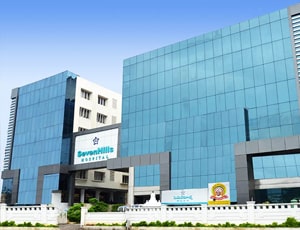
Deep brain stimulation (DBS) therapy, which includes implanting electrodes or leads within particular brain regions, is offered by the neurology department at Seven Hills Hospital. These electrodes generate specific electrical impulses that work to control aberrant impulses or have an impact on specific substances and brain cells. Deep brain stimulation therapy aids in the treatment of neurological diseases like Parkinson's disease, multiple sclerosis, dystonia, essential tremor, and Alzheimer's disease that are brought on by abnormal electrical signals.
The diagnosis for DBS is made by Physical examination, Blood and urine tests, CT scans and MRI scans, Electroencephalography, Neuropsychological evaluation, and Yale-Brown Obsessive Compulsive Scale (YBOCs) testing. MRI and CT scans are used to identify the areas of the brain where electrodes must be placed. The procedure is sometimes performed under general anesthesia where the wires of electrodes are in contact with neurotransmitters implanted at the collarbone. It qualifies as a minimally invasive procedure. Dr. Tushar Raut and Dr. Tarun Mathur are some of the neurology experts associated with Seven Hills Hospital.
Best doctors for Deep Brain Stimulation at Seven Hills Hospital:
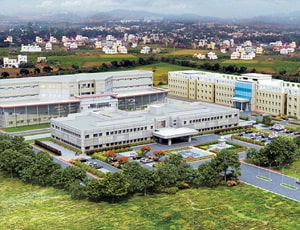
The Department of Neurosurgery at Gleneagles Global Hospital is outfitted with advanced diagnostic laboratories, and cutting-edge assistive technology, and operates in a cutting-edge environment. Stealth Navigation (S8) System, Advanced Surgical Microscopes, Cavitron Ultrasonic Aspirator (CUSA), CRW Stereotactic Equipment, Transcranial Doppler, Intracranial Pressure Monitoring Equipment, Intraoperative Neuromonitoring (Brain Mapping), and imaging technologies such as 3 Tesla MRI/ Functional MRI, Diffusion Tensor Imaging, CT Angiography, and Digital Subtraction Angiography are available in the department.
Every year, the department performs over a thousand surgical procedures. Deep brain stimulation is a treatment option at Gleneagles Hospital for the motor-function loss associated with Parkinson's disease. Tremors, poor hand-eye coordination, difficulty walking, and stiffness are all symptoms. An electrode is implanted in the brain, and an implantable pulse generator is implanted in the sub clavicle region, which is linked by an extension cable. To counteract the movement tics associated with Parkinson's disease, the pulse generator sends small electrical signals to an electrode in the brain.
Best doctors for Deep Brain Stimulation at Global Health City:
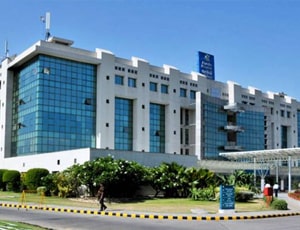
The neurosurgeons and neurologists at Apollo Hospital International Limited work together to provide Deep Brain Stimulation treatment for patients with conditions such as Parkinson's, Obsessive Compulsive Disorder, Essential Tremor, and others. Deep brain stimulation (DBS) can be used to treat symptoms such as tremors, rigidity, stiffness, slowed movement, and walking difficulties at Apollo.
Essential tremor, a common neurological movement disorder, is also treated with the procedure. By destroying nerve cells, DBS does not harm healthy brain tissue. Instead, the procedure disables electrical signals from specific areas of the brain. DBS works by sending electrical signals to the brain. DBS can reduce tremors and significantly improve slowness and stiffness in people with Parkinson's disease, as well as make tremors disappear in people with ET. For those suffering from dystonia, DBS can help relax muscles and improve abnormal postures caused by muscle contractions. In all cases, DBS can help to improve one's quality of life. Dr. Abhidha Shah, Dr. Aditya Mantry, and Dr. Alok Ranjan are some of the neurosurgeons at Apollo Hospital International Limited.
Best doctors for Deep Brain Stimulation at Apollo Hospital International Limited:
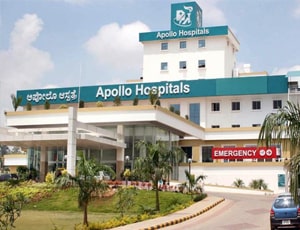
Deep Brain Stimulation (DBS) is available at Apollo Hospitals Bannerghatta for conditions that impair the functioning of your neurons. DBS is used to treat conditions such as epilepsy, Parkinson's disease, dystonia, essential tremor, and obsessive compulsive disorder(OCD) in Apollo. Before DBS, detailed MRI (Magnetic Resonance Imaging) and CT (Computer Tomography) scans of the brain are performed. These scans will assist your doctor in determining the best location for the DBS wires.
DBS entails implanting electrodes within the brain that generate electrical impulses, thereby regulating abnormal impulses. These generated electrical impulses can affect specific cells and chemicals in the brain, assisting in medical conditions. Because of the multidisciplinary activities carried out at the Apollo Hospitals in Karnataka, Deep Brain Stimulation necessitates close collaboration between neurologists and neurosurgeons for effective results. To safely and precisely identify the right candidate for DBS, it is performed in a specially trained clinic setting. The advantages of this surgery include an improvement in Parkinson's disease(Progressive Disorder) motor symptoms . Dr Gurucharan Adoor, Dr Jagadish B Agadi, and Dr Karthik Nagaraj are the neurosurgeons at Apollo Hospitals Bannerghatta.
Best doctors for Deep Brain Stimulation at Apollo Hospitals Bannerghatta:
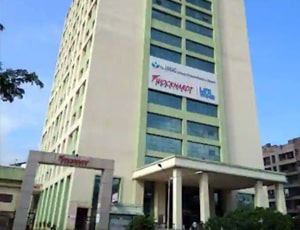
The neurology department at Wockhardt Hospital provides deep brain stimulation (DBS) therapy, which involves implanting electrodes or leads within specific brain regions. These electrodes produce specific electrical impulses that either control abnormal impulses or have an effect on specific substances and brain cells. Deep brain stimulation therapy aids in the treatment of neurological diseases caused by abnormal electrical signals, such as Parkinson's disease, multiple sclerosis, dystonia, essential tremor, and Alzheimer's disease.
Physical examination, blood and urine tests, CT scans and MRI scans, electroencephalography, neuropsychological evaluation, and Yale-Brown Obsessive Compulsive Scale (YBOC) testing are used to make the DBS diagnosis. MRI and CT scans are used to determine which areas of the brain require electrode placement. The electrode wires are in contact with neurotransmitters implanted at the collarbone during the procedure, which is sometimes performed under general anesthesia. It is considered a minimally invasive procedure. Dr. Kant Jogani is a neurology specialist affiliated with Wockhardt Hospital.
Best doctors for Deep Brain Stimulation at Wockhardt Hospital, Umrao:
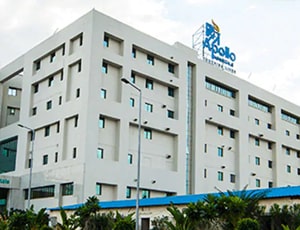
Deep Brain Stimulation treatment is provided by the neurosurgeons and neurologists at Apollo Hospital for patients suffering from Parkinson's disease, Obsessive Compulsive Disorder, Essential Tremor, and other conditions. Tremors, rigidity, stiffness, slowed movement, and walking difficulties can all be treated with deep brain stimulation (DBS) at Apollo.
The procedure is also used to treat essential tremors, a common neurological movement disorder. DBS does not harm healthy brain tissue by destroying nerve cells. The procedure, instead, disables electrical signals from specific areas of the brain. DBS operates by delivering electrical signals to the brain. DBS can significantly improve slowness and stiffness in people with Parkinson's disease, as well as eliminate tremors in people with ET. DBS can help relax muscles and improve abnormal postures caused by muscle contractions in those suffering from dystonia. DBS can help to improve one's quality of life in all cases. Some of the neurosurgeons at Apollo Hospital include Dr. Arulselvan V L, Dr. Dhanaraj M, and Dr. Yogaraj S.
Best doctors for Deep Brain Stimulation at Apollo Hospital:
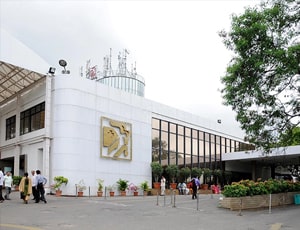
Deep Brain Stimulation (DBS) is a treatment option at Apollo Hospitals for conditions that impair neuron function. In Apollo, deep brain stimulation (DBS) is used to treat conditions such as epilepsy, Parkinson's disease, dystonia, essential tremor, and obsessive compulsive disorder (OCD). Detailed MRI (Magnetic Resonance Imaging) and CT (Computer Tomography) scans of the brain are performed prior to DBS. These scans will help your doctor decide where to place the DBS wires.
DBS involves implanting electrodes within the brain that generate electrical impulses, allowing abnormal impulses to be regulated. These electrical impulses can affect specific cells and chemicals in the brain, which can help with medical conditions. Deep Brain Stimulation requires close collaboration between neurologists and neurosurgeons due to the multidisciplinary activities performed at the Apollo Hospitals for effective results. It is performed in a specially trained clinic setting to safely and precisely identify the right candidate for DBS. One of the benefits of this surgery is that it improves the motor symptoms of Parkinson's disease (Progressive Disorder). Dr C Rajesh Reddy, Dr Madhuri Khilari, and Dr Sandeep Nayani are the neurosurgeons at Apollo Hospitals.
Best doctors for Deep Brain Stimulation at Apollo Hospitals:
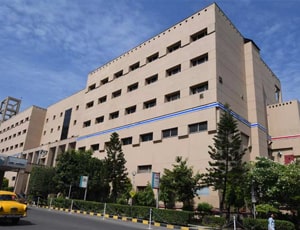
Deep Brain Stimulation (DBS) is a treatment option at Apollo Multispecialty Hospitals for conditions that impair neuron function. Deep brain stimulation (DBS) is used in Apollo to treat conditions such as epilepsy, Parkinson's disease, dystonia, essential tremor, and obsessive compulsive disorder (OCD). Prior to DBS, detailed MRI and CT (Computer Tomography) scans of the brain are performed. These scans will aid your doctor in determining where to place the DBS wires.
By implanting electrodes that produce electrical impulses inside the brain, DBS enables the regulation of aberrant impulses. Certain brain cells and molecules may be impacted by these electrical impulses, which may benefit some medical conditions. In order to achieve successful outcomes with Deep Brain Stimulation, neurologists and neurosurgeons work closely together at Apollo Multispecialty Hospitals. This is owing to the interdisciplinary activities carried out at the Apollo Hospitals. To accurately and securely choose the best candidate for DBS, it is carried out in a properly equipped clinic setting. This operation has the advantage of reducing the motor symptoms of Parkinson's disease (Progressive Disorder). Dr Aditya Choudhary, Dr Amitabha Ghosh, and Dr Debabrata Chakraborty are the neurosurgeons at Apollo Multispecialty Hospitals.
Best doctors for Deep Brain Stimulation at Apollo Multispecialty Hospitals:
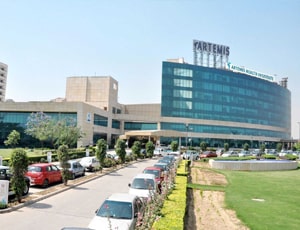
At Artemis Health Institute, deep brain stimulation (DBS) is a treatment option for conditions that impede neuron function. For the treatment of disorders like epilepsy, Parkinson's disease, dystonia, essential tremor, and obsessive-compulsive disorder, the experts at Artemis perform deep brain stimulation (DBS). Comprehensive MRI and CT (Computer Tomography) brain scans are carried out before DBS. Neurologists use these scans to help them decide where to place the DBS wires.
By implanting electrodes that produce electrical impulses inside the brain, DBS enables the regulation of aberrant impulses. These electrical impulses may impact certain brain cells and molecules, which may benefit some medical conditions. In order to achieve successful outcomes with Deep Brain Stimulation, neurologists and neurosurgeons work closely together at Artemis Health Institute. This is owing to the interdisciplinary activities carried out at the Hospital. Deep Brain Stimulation can help reduce the motor symptoms of Parkinson's disease (Progressive Disorder). Dr. S. K. Rajan, Dr. Pawan Goyal, and Dr. Sanjeev Srivastava are the neurosurgeons at Artemis Health Institute.
Best doctors for Deep Brain Stimulation at Artemis Health Institute :
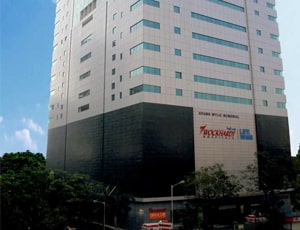
Wockhardt Hospital- A New Age Hospital provides Deep Brain Stimulation as a treatment option for conditions that impair neuron function. The neurosurgeons and neurologists work together to place the device in your brain and chest to manage abnormal impulses. DBS is said to improve the motor functions of patients suffering from conditions like epilepsy, Parkinson's disease, dystonia, essential tremor, and obsessive-compulsive disorder (OCD). Detailed MRI (Magnetic Resonance Imaging) and CT (Computer Tomography) scans of the brain are performed prior to DBS to determine the exact place where the electrodes must be placed.
During this surgery at Wockhardt Hospital, the neurosurgeon plants electrodes inside the patient’s brain that generate electrical impulses and manage abnormal impulses. These impulses can help with many medical conditions. At the hospital, the procedure is performed with precision and safety. Dr. Mazda Turel, Dr. Pandurang Reddy M, and Dr. Chandranath R Tiwari are some of the neurosurgeons at Wockhardt Hospitals.
Best doctors for Deep Brain Stimulation at Wockhardt Hospital - A New Age Hospital:
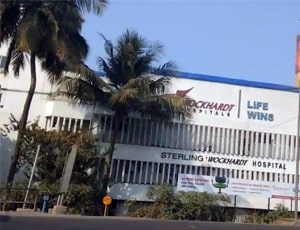
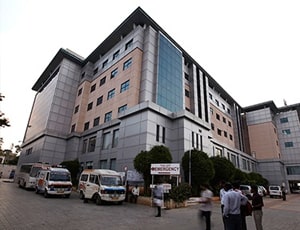
BGS Gleneagles Global Hospital's Department of Neurosurgery is equipped with advanced diagnostic laboratories and cutting-edge assistive technology, and it operates in a cutting-edge environment. The department is equipped with a Stealth Navigation (S8) System, Advanced Surgical Microscopes, Cavitron Ultrasonic Aspirator (CUSA), CRW Stereotactic Equipment, Transcranial Doppler, Intracranial Pressure Monitoring Equipment, Intraoperative Neuromonitoring (Brain Mapping), and imaging technologies such as 3 Tesla MRI/ Functional MRI, Diffusion Tensor Imaging, CT Angiography, and Digital Subtraction Angiography.
The department performs over a thousand surgical procedures each year. Deep brain stimulation is a treatment option for the motor-function loss associated with Parkinson's disease at Gleneagles Hospital. Symptoms include tremors, poor hand-eye coordination, difficulty walking, and stiffness. An electrode is implanted in the brain, and an implantable pulse generator is implanted in the subclavicular region, with the two connected by an extension cable. The pulse generator sends small electrical signals to an electrode in the brain to counteract the movement tics associated with Parkinson's disease. Dr. PC Mohan, Dr. Kranthi Mohan, and Dr. Lakshman Kongwad are some of the neuro-experts associated with BGS Gleneagles Global Hospitals.
Best doctors for Deep Brain Stimulation at BGS Gleneagles Global Hospitals:

Apollo Hospitals has introduced Sub Thalamic Nucleus (STN) Deep Brain Stimulation (DBS), the most recent advancement in Parkinson's disease surgery, in India. The surgery is carried out in two parts, brain surgery, and chest surgery. Some of the diagnostic tests performed before a Deep Brain Stimulation at Indraprastha Apollo Hospital include brain-imaging studies, such as an MRI, before the surgery. The diagnostic tests guide the surgeons to map the areas of the brain and implant the electrodes at the right location.
Deep brain stimulation (DBS) is a surgical procedure used at Apollo to treat a variety of neurological symptoms, most notably those associated with Parkinson's disease (PD), such as tremors, rigidity, stiffness, slowed movement, and walking difficulties. Essential tremor, a common neurological movement disorder, is also treated with the procedure. DBS does not harm healthy brain tissue. Instead, the procedure disables electrical signals from specific areas of the brain. For those suffering from dystonia, DBS can help relax muscles and improve abnormal postures caused by muscle contractions. Dr. Sudheer Kumar Tyagi, Dr. Anoop Kohli, and Dr. Mukul Varma are some of the faces of the neurology department at Indraprastha Apollo Hospital.
Best doctors for Deep Brain Stimulation at Indraprastha Apollo Hospital:
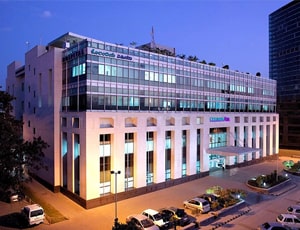
Deep Brain Stimulation at Manipal Hospital, Yeshwantpur is a safe, viable, and recommended option for patients with conditions like Parkinson’s disease, essential tremors, dystonia, etc. At the hospital, the surgery can be performed with minimal invasion. The DBS procedure employs a battery-powered device known as a neurostimulator (similar to a pacemaker) that is implanted beneath the skin of the upper chest. The neurostimulator stimulates the areas of the brain that control movement. This aids in the blocking of nerve signals that cause abnormal movements.
To significantly improve patient outcomes, the hospital employs the most recent advances in medical and device technology. Manipal Hospital performs DBS surgery in two parts: brain and chest surgery. The surgical team will first secure the patient's head on a special head frame before using neuroimaging (CT or brain MRI) to map the brain and identify the exact area in the brain where the electrodes will be placed. The electrodes are usually placed while the patient is alert and awake. The surgeon will implant the part of the device that contains the batteries (pulse generator) under the skin in the patient's chest, near the collarbone, in the second part of the surgery. Dr. Avinash K M And Dr. Raghuram G are brain and spine specialists at the Manipal Hospital, Yeshwantpur.
Best doctors for Deep Brain Stimulation at Manipal Hospital, Yeshwantpur:
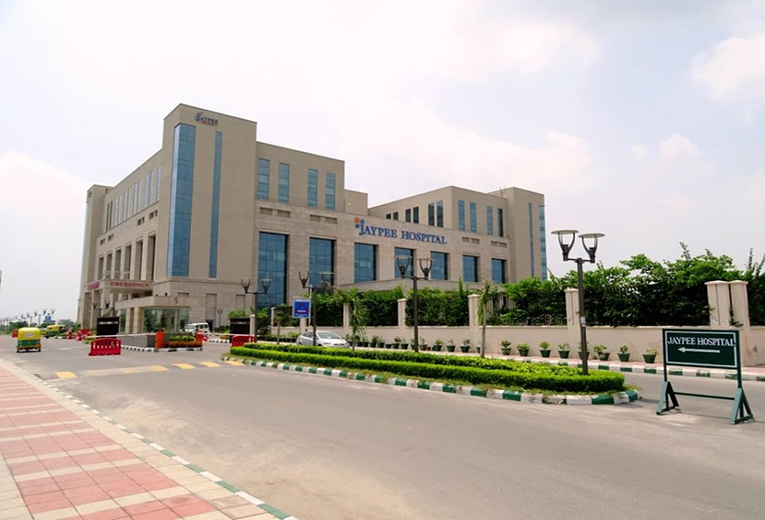
The department of neurosurgery at Jaypee Hospital is led by a team of super specialty surgeons who deal with the prevention, diagnosis, surgical treatment, and rehabilitation of neurological disorders. There are advanced and up-to-date technologies at the hospital to ensure minimally invasive neurology treatment. Deep Brain Stimulation is performed at Jaypee Hospital for conditions like dystonia, Parkinson’s, essential tremor, etc. DBS is performed as awake surgery.
The department of neurosurgery at Jaypee is equipped with 2 Neuro OTs and 15 beds dedicated to Neuro ICU. Facilities like Biplane cath lab, video EEG, neuro navigation, modular OT and 3.0 Tesla MRI machine aid the surgeons in making a fast and accurate diagnosis and treating a variety of conditions including the ones causing movement disorders. Dr. K.M. Hassan, Dr. Rohan Sinha, and Dr. Dinesh Rattnani are doctors associated with the Neuro department at Jaypee Hospital.
Best doctors for Deep Brain Stimulation at Jaypee Hospital:
| Doctor Name | Cost | Book Appointment |
|---|---|---|
| Dr. P K Sachdeva | 35 USD | Book Now |
| Dr. Yashpal Singh Bundela | 19 USD | Book Now |
| Dr. Manish Vaish | 23 USD | Book Now |
| Dr. Pawan Garg | 23 USD | Book Now |
| Dr. Mukesh Pandey | 23 USD | Book Now |
Ask your healthcare adviser for the best multiple options and choose the one that meets your expectations
It's a fact that while ranking a hospital, certain factors need to be considered. While categorizing hospitals for Deep Brain Stimulation in India, some of the important factors are Infrastructure, Procedure Availability, Popularity of procedure, Technology, Cost-effectiveness, Skilled medical personnel, Patient-care facilities, and Rate of Success
MediGence offers a blend of high-quality medical care, convenience, and cost-savings for patients across the world. While travelling for treatment abroad, MediGence makes sure that your healthcare journey should be smooth and hassle-free. Some of the top caregiving services available include Hotel stays, Dedicated Case Coordinator, Recovery packages, Online Consultation, round-the-clock assistance, and customized packages with discounts of up to a 30%. Along with all these, MediGence offers many other unmatched services for giving you the most stress-free healthcare experience.
Yes, it's simple to do that. To schedule your online consultation with the specialist, you can reach one of our patient counselors. They will verify the doctor's consultation availability. Once confirmed, a payment link will be provided to you so you may schedule your online consultation.
Doctors from India are well-renowned in the medical fraternity around the world. Go through the list of some famous specialists in India-
Many people around the world consider Deep Brain Stimulation in India to be trustworthy due to the high success rate and excellent hospital infrastructure. Other factors that contribute to India being the best choice for Deep Brain Stimulation include:
Different procedures have varying recovery times based on the patient's health and the complexity of the treatment. Other factors like continuously taking rehab sessions and enrolling in postoperative care sessions also greatly impact the recovery time of the patient. Following surgery, patients must return for follow-up appointments to ensure proper healing and to expedite the healing process.
There are two major healthcare accreditation standards followed by healthcare providers in India. A benchmark has been set by National Accreditation Board for Hospitals & Healthcare Providers (NABH). The second accreditation is Joint Commission International whose quality benchmark is sought after by so many different healthcare providers. National Accreditation Board for Hospitals & Healthcare Providers has been recognised as one of these standards.
The general medical needs of patients are also taken care of by these hospitals. All kinds of surgeries are offered at these multispecialty hospitals. Indian multispecialty hospitals offer world class medical treatment at affordable cost. The hospitals that are providing the best treatment in India are BLK Super Specialty Delhi, Medanta Medicity Hospital, Gurgaon, Apollo Hospital, Delhi, Nanavati Hospital, Mumbai, Artemis Hospital, Gurgaon. Fortis Hospital, Noida.
India has some of the finest hospitals in the world that use high-end technologies at par with the western world and adhere to international health standards. Indian pool of qualified doctors are highly professional, extremely competent and provide treatment with precision and accuracy. There are several important factors that make India the most favored destination for medical travelers the world over like ease of communication, ease of travel, visa assistance and alternative treatment availability. When we talk of good healthcare and economical prices, we come to India.
Newer healthcare challenges are met with great degree of confidence by doctors in India which translates to satisfied patients. The doctors in India have been educated at premier educational institutions in the world. The proficiency of Indian doctors is well considered the world over considering their excellent skills and the precision with which they apply the skills to treat patients. There is a personal touch that Indian doctors and surgeons provide you with and the best of medical care.
When traveling to India for medical treatment, you need to carry documents like medical history, test reports, records, doctor referral notes, passport copies, residence/ driver’s license/ bank statement/ details of Health insurance, if any. It is important that you get your trip off to a good start by packing your belongings well in time. The first step of any journey begins by packing our luggage. It is essential that you make sure your documents are aligned with your destination country.
Heart surgeries, orthopaedic procedures, organ transplants and cancer treatment are on a growth path in India because of the exceptionally good doctors and the lower cost of surgery and treatments. The steep rise in the number of popular procedures performed regularly in India is also because of a number of good hospitals and related healthcare facilities. We bring to you the popular procedures being routinely accomplished in India, The popular procedures that are being performed in India are being refined over time owing to an upgradation of various techniques and technologies.
Vaccinations and up-to-date immunizations are important for any international travel. Please remain updated with the travel advisory issued by the Government of India or remain in touch with the hospital in India to get complete information on vaccination guidelines. Even those medical tourists coming to India must get it done. Your India visit would be safer if you have vaccinated yourself with hepatitis A, hepatitis B, Covid, typhoid fever, Japanese encephalitis, rabies, DPT, measles, yellow fever medicines.
Hospitals in India offer world-class facilities to international patients to ensure safety and comfort throughout their stay in India. The hospitals in India have international patient care centers providing all kinds of assistance and care that the patients require. The needs and requirements of you or your family members are met by the hospitals which makes your stay comfortable. The medical travellers coming to India are made to feel home with facilities like room reservation, visa and embassy assistance, hotel services and apartment bookings, language interpretation services, tele-consults and pre departure evaluation.
Some of the leading medical tourism destinations in India are Mumbai, Kolkata, Chennai, Delhi, Hyderabad, and Bengaluru. The exceptional patient care and treatment plans, seamless availability of medical visas have made India a premier medical tourism destination. India is most definitely a medical tourism hub owing to its excellent medical services. Both the private sector and the Government of India are making sure to promote in the growth of the medical tourism sector in India and the results are for everyone to see.